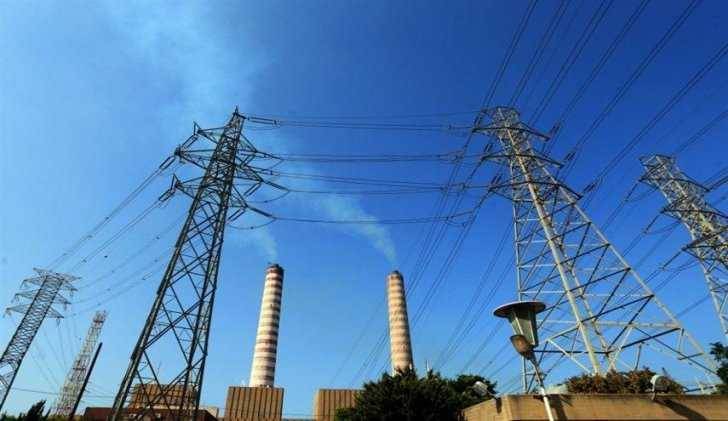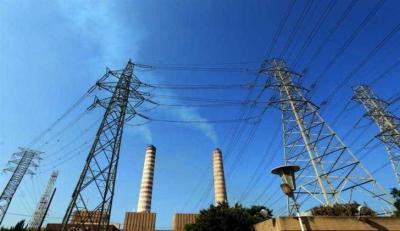The statement by Lebanese Prime Minister Najib Mikati regarding electricity supply offers has sparked a debate in Lebanon. Mikati announced that Energy Minister Walid Fayad pulled the matter from the Cabinet for "further study," prompting the Energy Ministry to respond, rejecting two offers from international companies at a time when "gas prices are significantly rising." The ministry's sources indicated that Lebanon is waiting to import gas from Egypt "at a much lower cost."
The Lebanese government entered a caretaker phase yesterday after the current parliament's term ended, meaning the government is technically resigned and manages affairs until a new government is formed. On the eve of this phase, Mikati revealed that the government had previously decided to "negotiate with four international companies: Ansaldo, Mitsubishi, General Electric, and Siemens about the possibility of supplying Lebanon with generators for a 24-hour continual electricity supply." He added that "General Electric and Siemens, in coordination with international groups, presented an offer to supply Lebanon with electricity before next summer at a very acceptable price, including gas prices for energy production. However, we delayed the matter until a suitable set of specifications is prepared transparently and in accordance with applicable laws."
Mikati continued, "Personally, I received, as did the Energy Ministry, two offers from General Electric and Siemens, each comprising the supply of 1,000 megawatts of gas-powered electricity to the Deir Ammar and Zahrani plants, with the two companies also providing the necessary gas for power generation at a very acceptable price when compared to global prices." He added, "We decided to commission a consulting firm to prepare the specifications as quickly as possible to conduct an international bidding process in accordance with the rules. Unfortunately, after the Minister of Energy sent the request to the Cabinet, it was withdrawn on Thursday without providing any justification other than 'for further study.'"
The Energy Ministry's response clarified that Minister Fayad did not have enough time to study the offer he received before the Cabinet meeting. The ministry stated that Fayad "is studying the offers and negotiating based on them, and it is not necessary for him to approve under pressure that the government will move into caretaker status, as he can take his time in negotiations to avoid burdens on the Lebanese treasury before agreeing," referencing the possibility of passing it under the resigned government through an exceptional decree signed by the prime ministers of the government and the republic.
Sources also indicated that the reluctance to supply the Zahrani plant (in the south) with gas was due to the fact that current gas prices are "the highest in history" due to the repercussions of the Russian-Ukrainian war. Thus, "approval would mean committing to pay exorbitant costs at the peak price, while prices might decrease at a later time during a period of calm, or through international settlements, allowing for the suitable timing for submitting the bid."
The sources highlighted that Lebanon is "in constant communication with the World Bank to find a solution for importing gas from Egypt, which will certainly be cheaper than the prices currently offered by European companies," emphasizing that approving these offers at this time "does not suit the country and its capabilities." They noted that "Fayad does not reject an approved offer at better prices and at the right timing for fluctuating global prices."
Fayad confirmed in a statement that he withdrew the item "due to the need for financial and contractual terms since it is a consensual contract, to include a price reduction, especially since it remains high, and to improve payment terms," stressing that "negotiation is still ongoing with Electricité de France." He added that the government "has entered the caretaker phase, and we must avoid increasing financial burdens on the state before confirming the best terms."
The electricity file remains one of the most contentious issues that successive governments have failed to resolve, with power cuts lasting up to 20 hours daily in some areas. The Parliament has refused to grant the Electricité du Liban any treasury advance to finance the cost of fuel before implementing necessary sector reforms, including establishing a regulatory authority, implementing a power plan including gas stations, and reducing technical losses.
In an attempt to mitigate the escalating crisis since last summer, Lebanon agreed to a proposal to import gas from Egypt and electricity from Jordan through Syrian territory, but the proposal awaits World Bank approval for project financing and a final American exemption for Egypt and Jordan from "Caesar" sanctions.
Amidst this controversy, elected MP Ashraf Rifi stated in a statement that what the Prime Minister said about withdrawing specifications for gas-fueled power plants "represents a continuation of a major crime being committed against Lebanese people drowning in darkness," asserting that "the primary responsibility lies with Gibran Bassil, protected by Hezbollah, who has dominated the Ministry of Energy since 2008, treating it as his personal property, with all the failures, waste, and corruption exercised therein, while the Lebanese pay the price." He added, "It is no longer acceptable to lament this ongoing crime, especially from those in positions of responsibility."
Mikati spoke two evenings ago about his government's efforts to address the electricity crisis, describing the electricity file as "the mother of all ailments" and "the primary reason for the financial bleeding of the treasury and the pockets of Lebanese people," noting the arrangement to secure "a minimum amount of energy through an agreement with the Iraqi government to provide fuel, which remains in effect." He pointed out that the phase of importing energy from Egypt and Jordan "is still linked to issues related to international law and completing agreements between Lebanon and the three countries to facilitate electricity and gas imports via Syria before the World Bank approves the loan for this phase."




